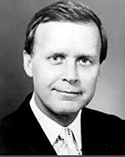Pisinski’s 2000 Financial Reforms Were Dumped by PRSA
By Jack O’Dwyer, New York
The one elected officer of PR Society of America who stood up against the false bookkeeping of the board/staff was 2000 chair Steve Pisinski, who had major posts with Ogilvy PR, Burson-Marsteller and Ketchum before opening his own firm in San Francisco.
Pisinski, who died in 2002, was PRS treasurer in 1998. He was fed up with the “dime store” accounting of the Society that misled members.
He wrote the entire membership on July 25, 2000 that the Society henceforth would “be in compliance with the method used by the American Society of Assn. Executives” and that new computer software would “calculate dues income as earned.”
Pisinski’s honesty and courage are needed by PRS now because of all the abuses perpetrated by current elected leaders and staff, the worst by far is false, misleading, non-existent and late financial reporting.
The U.S. is on its financial knees because the public did not get the right figures in enough time.
New York Times accounting columnist Floyd Norris put the entire blame for the financial mess on CPAs who allowed off-balance sheet entries and other abusive practices.
He wrote many columns on this theme including one on March 12, 2009 headlined, “Blame the Accountants.”
The Financial Accounting Standards Board rule 958-605-2-1 requires that dues be booked over the period covered (one year in the case of PRS).
Pisinski told auditor Deloitte & Touche to start counting dues income the correct way and the deferred dues account for 1999 was restated as $425,309 (from $198,746) and the 2000 DD account soared to $813,116. PRS was on the road to honesty. With dues income of $3.1M in 2000, the DD account should have been closer to $1.5M.
PRS had a DD account of $904,767 on dues of $2.1M in 1991but this was drawn down to $169,530 by 1995 to goose the net assets figure.
The ASAE, with $5.1M in 2000 dues, set aside $2.74M in DD. IABC, a group very close to PRS in membership and programs, the American Medical Assn., American Bar Assn., and AICPA all put at least half of dues in DD.
Next Boards Flopped
The Pisinski reforms lasted one year.
Deloitte & Touche was canned and the new auditor as of 2001 was the CPA firm of Sobel & Co., Livingston, N.J.
Instead of going up, the DD headed down again. It went to $566,459 in 2001 and $389,941 in 2002.
The 2010 audit, by PKF, shows only $290,948 in DD on dues of $4.4M. The DD should be about $2.2M which would reduce PRS’s net assets to about $1.2M.
We hope Society leaders and staff have stopped referring to the group’s cash/investments as “reserves” because PRS has no such thing as “reserves.”
What it has is a miniscule amount of earned cash with at least $2.2 million of the cash on hand owed for future services.
The $2.2M does not belong to PRS. It belongs to the members.
Full Airing Needed
A full airing of the Society’s finances is needed although traditionally staff/board have stood behind the “audit” as though it were an impregnable barricade.
The 2010 audit and many of its predecessors are flawed documents and get no respect from us.
The 2010 audit was prepared by treasurer Phil Bonaventura, who was paid $221K in salary/fringes in 2009. What the CPA firm does is come in, look over the figures, do a few checks here and there and approve it.
It does not plunge deeply into the finances. If it did, it would question the mere $260,816 allotted for staff time on the annual conference when ex-chairs and treasurers have assured us that large numbers of staff spend lots of time on the conference. Typically, 25-35 staffers attend the conference for periods of five to ten days.
None of the top eight staffers, including COO Bill Murray, will reveal their pay/fringes for 2010 or 2011.
That’s one of numerous other issues that need to be explored.
Pisinski Danced to Own Tune
Pisinski was a renegade chair to many of the highly conforming national leaders. Disregarding the rule that reporters could not enter the “sacred” Assembly area, he let them sit in the first row of the 2000 Assembly.
When COO Ray Gaulke wrote a letter to advertisers and leaders asking them to support with advertising and subscriptions PR Week which debuted in the U.S., in 1998, Pisinski condemned Gaulke and the board for interfering in the private marketplace.
PRS had no business supporting one of the PR trade publications, he said.
The Society’s support included letting PRW/U.S. use its membership for the initial circulation for an unknown period of months.



